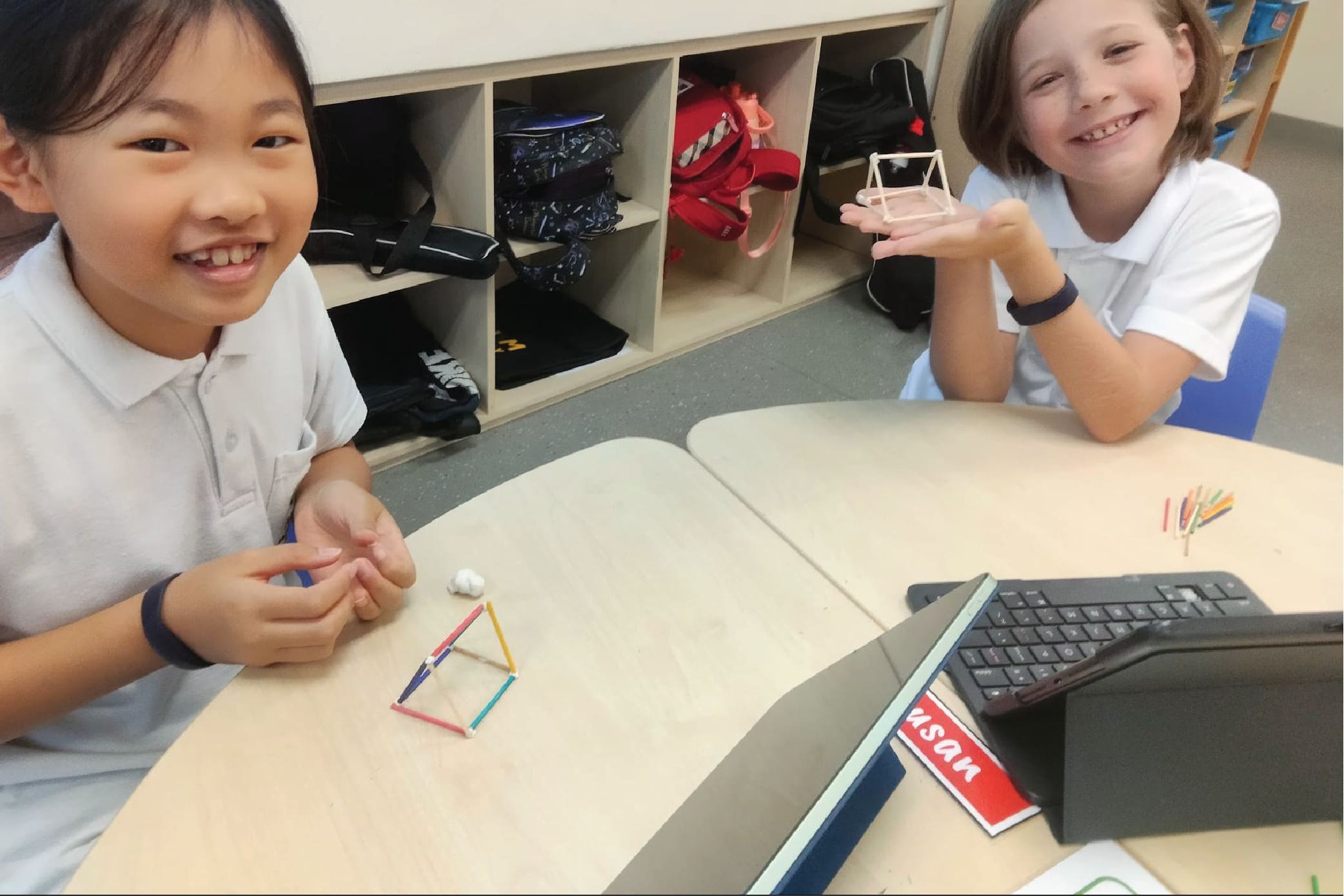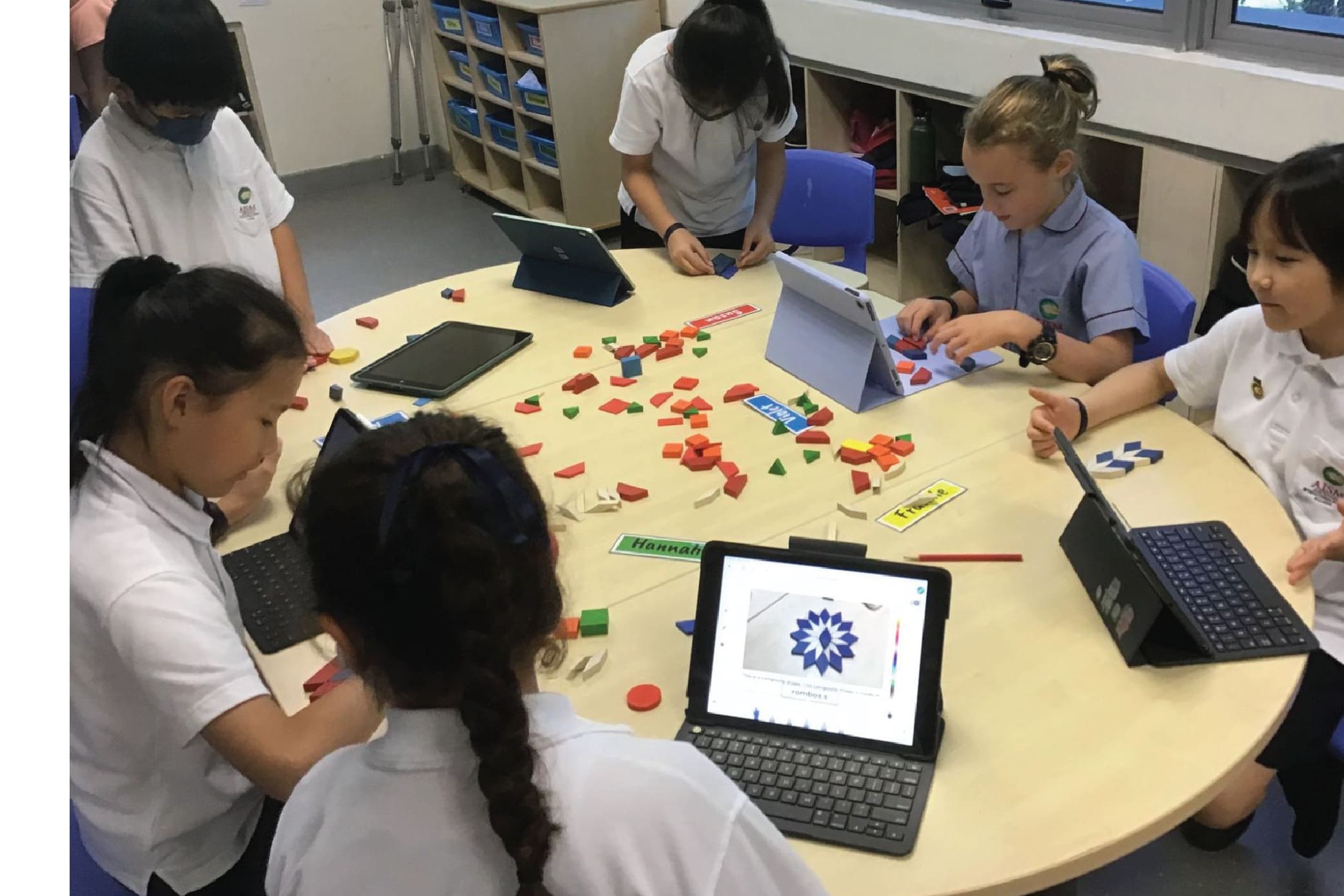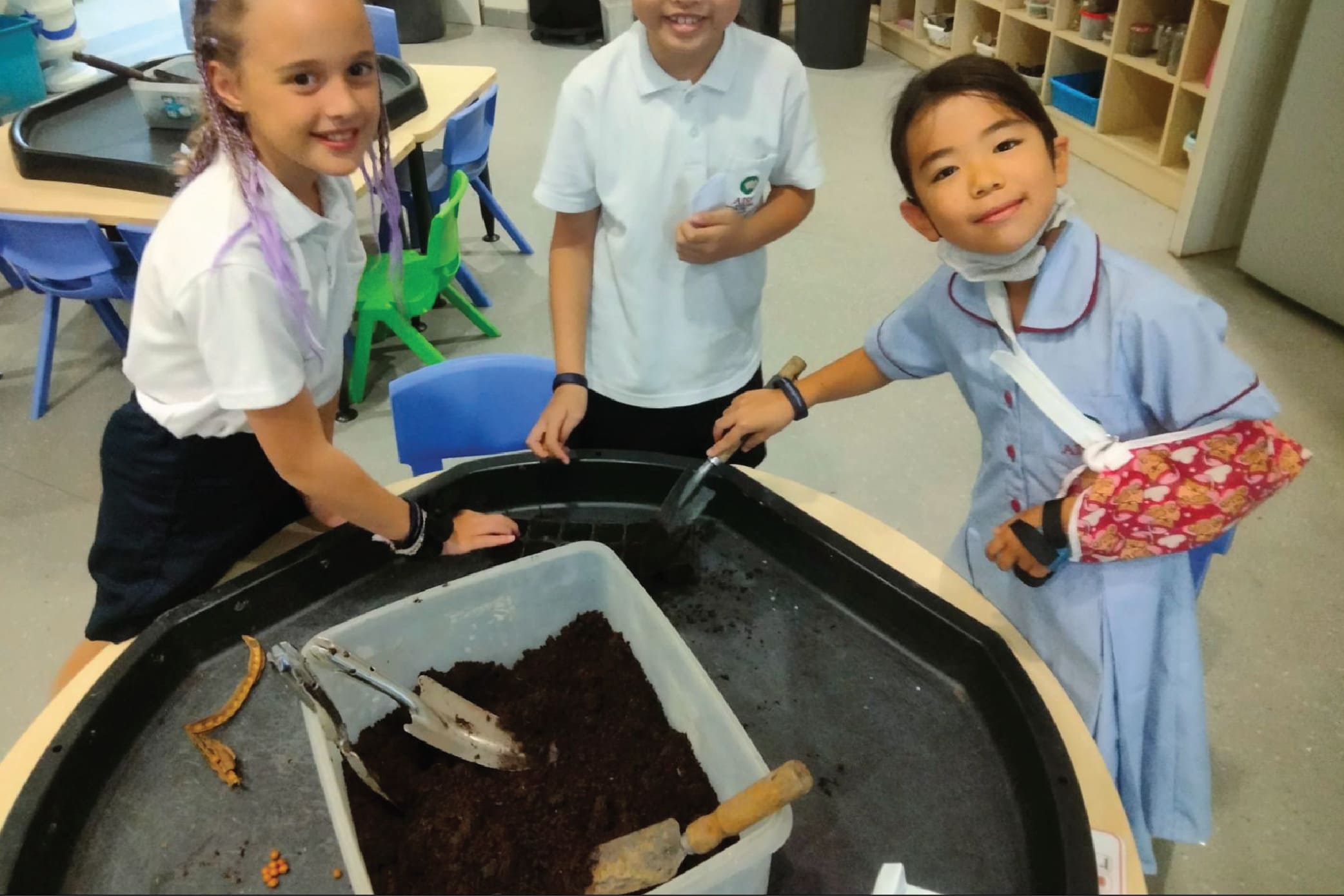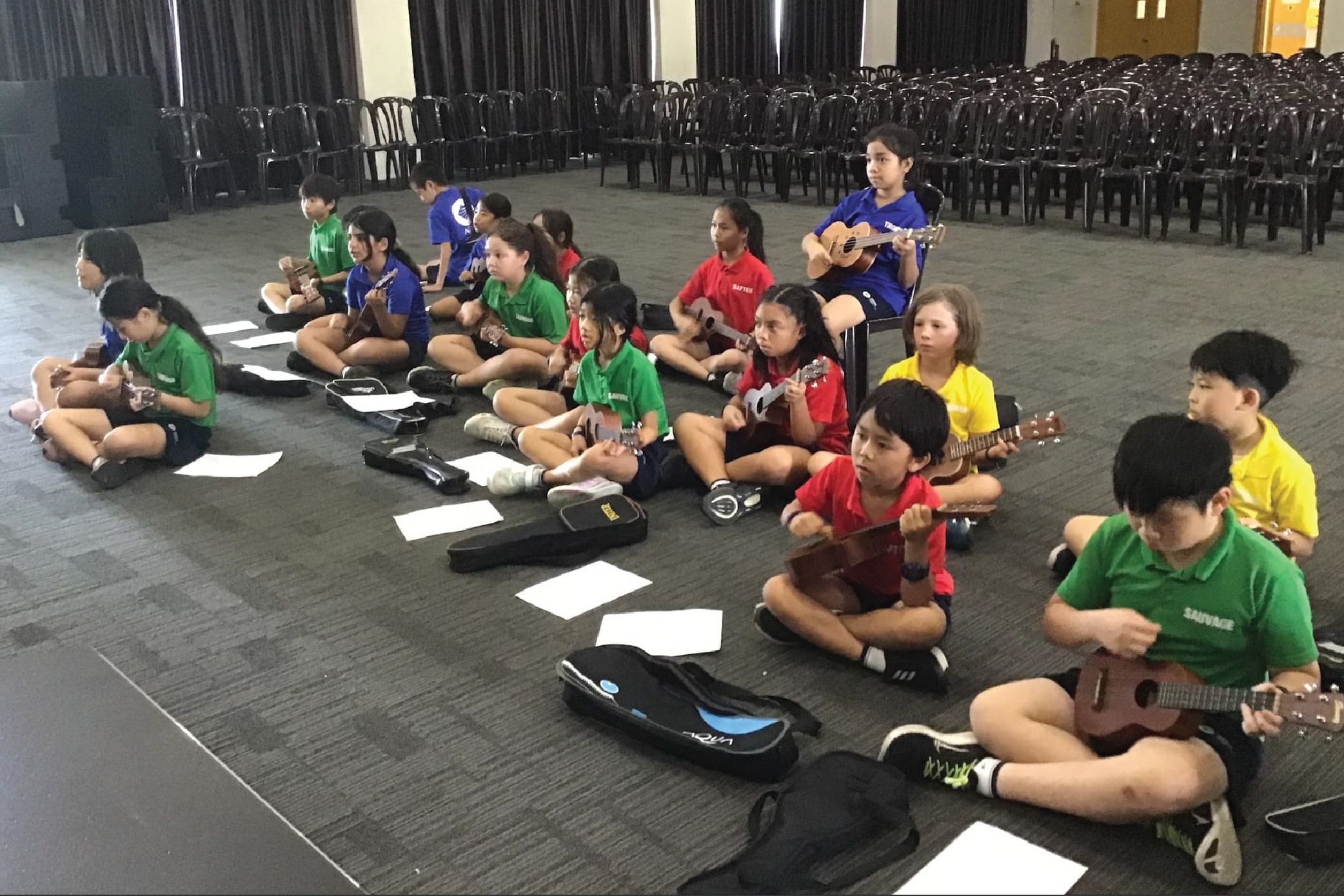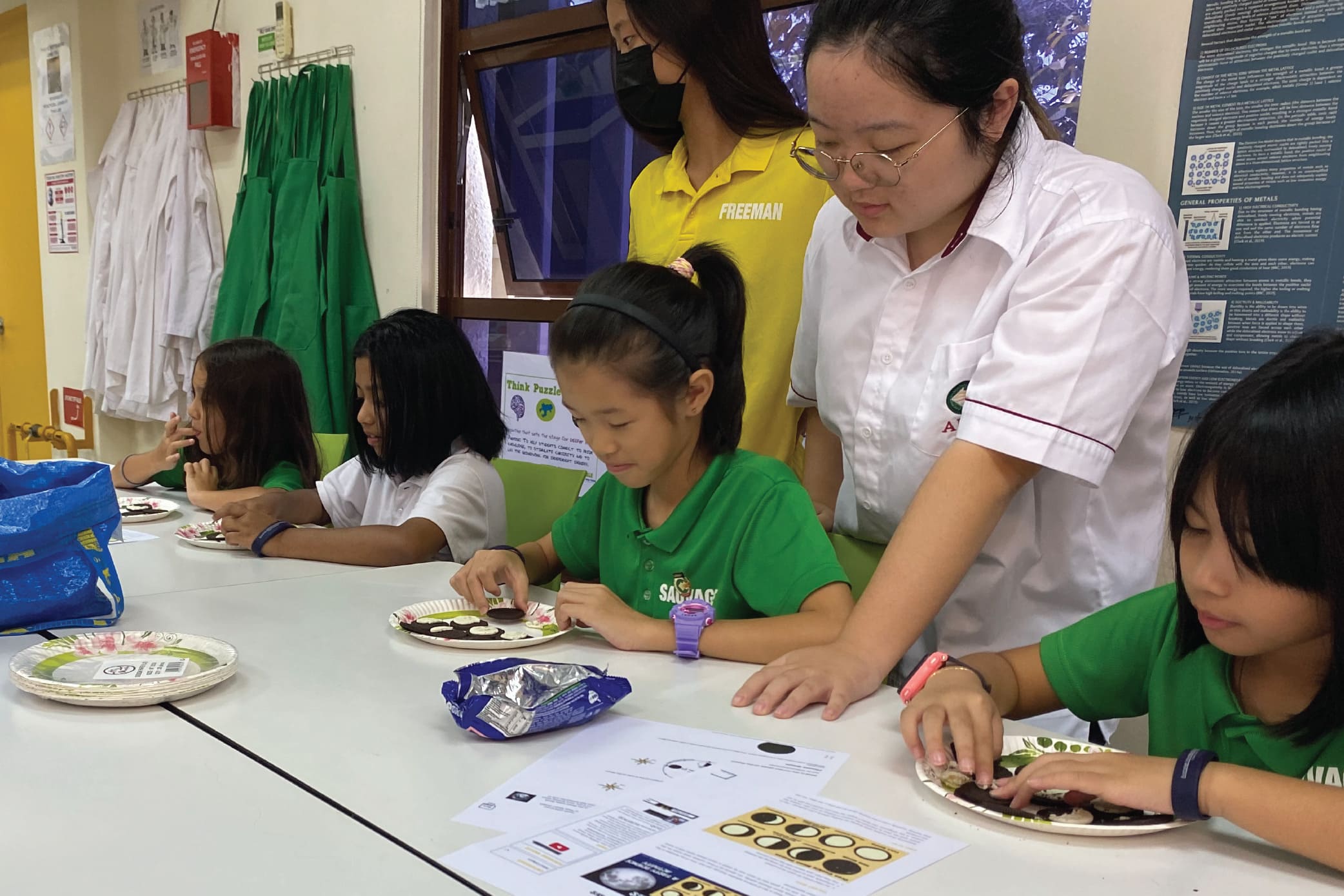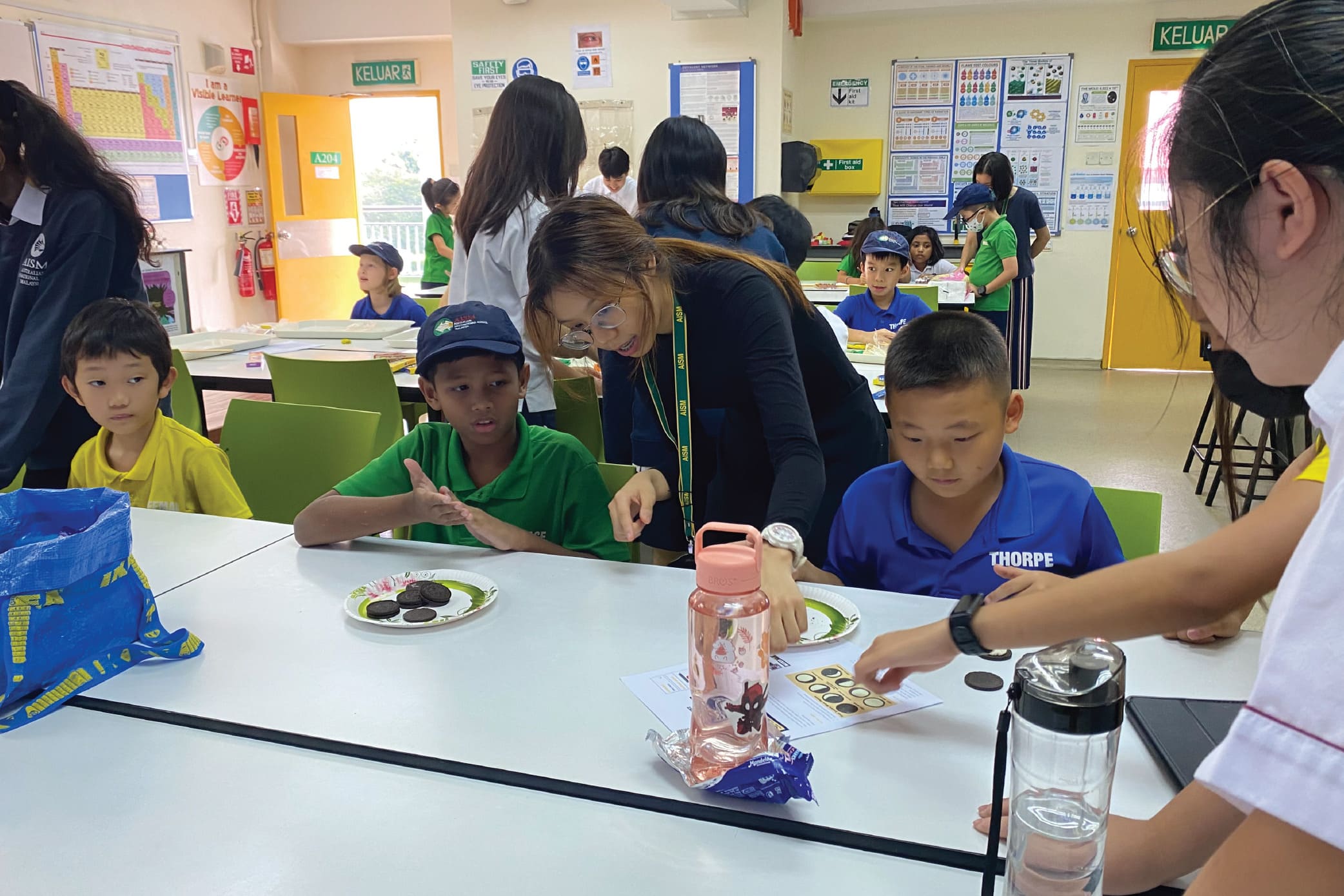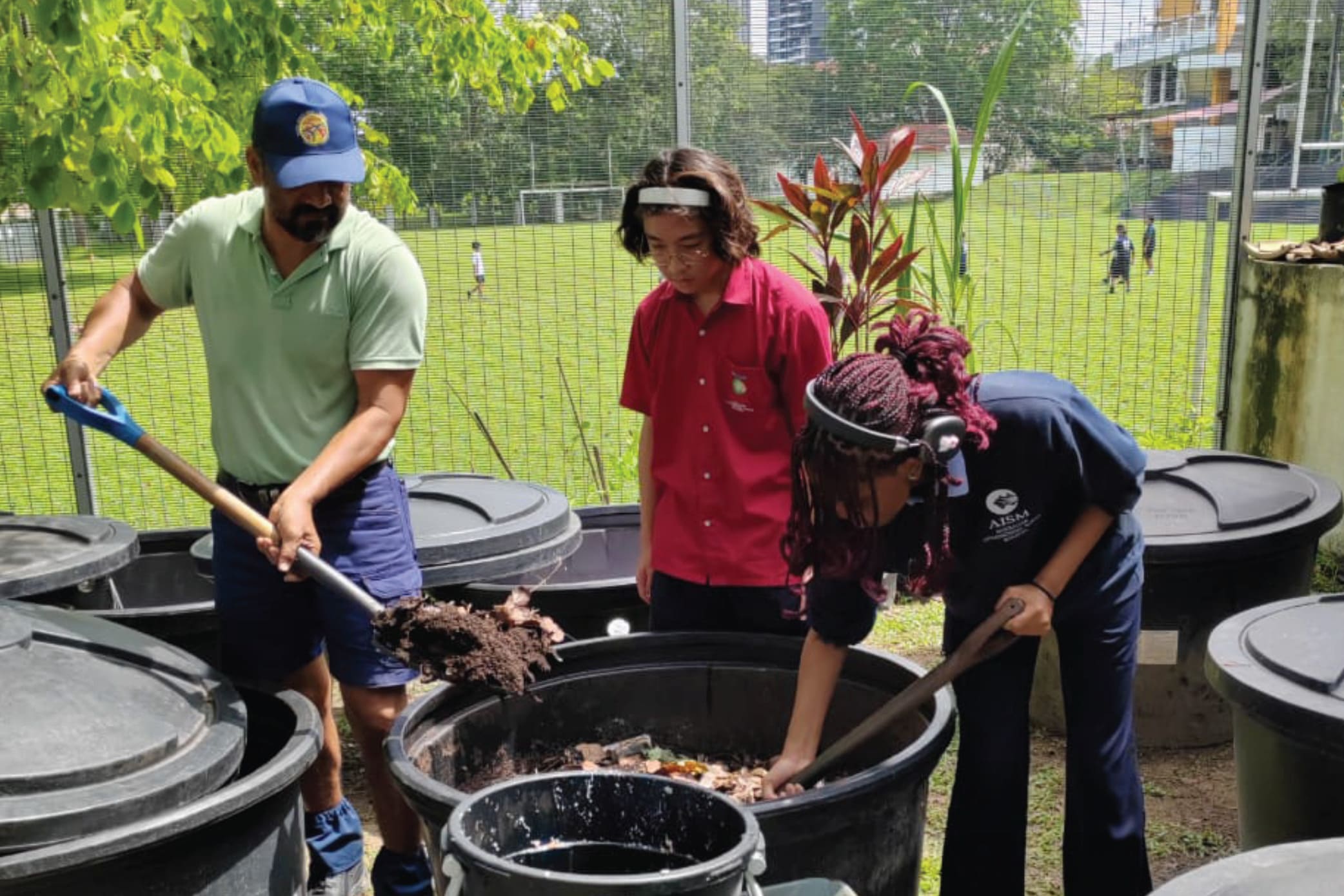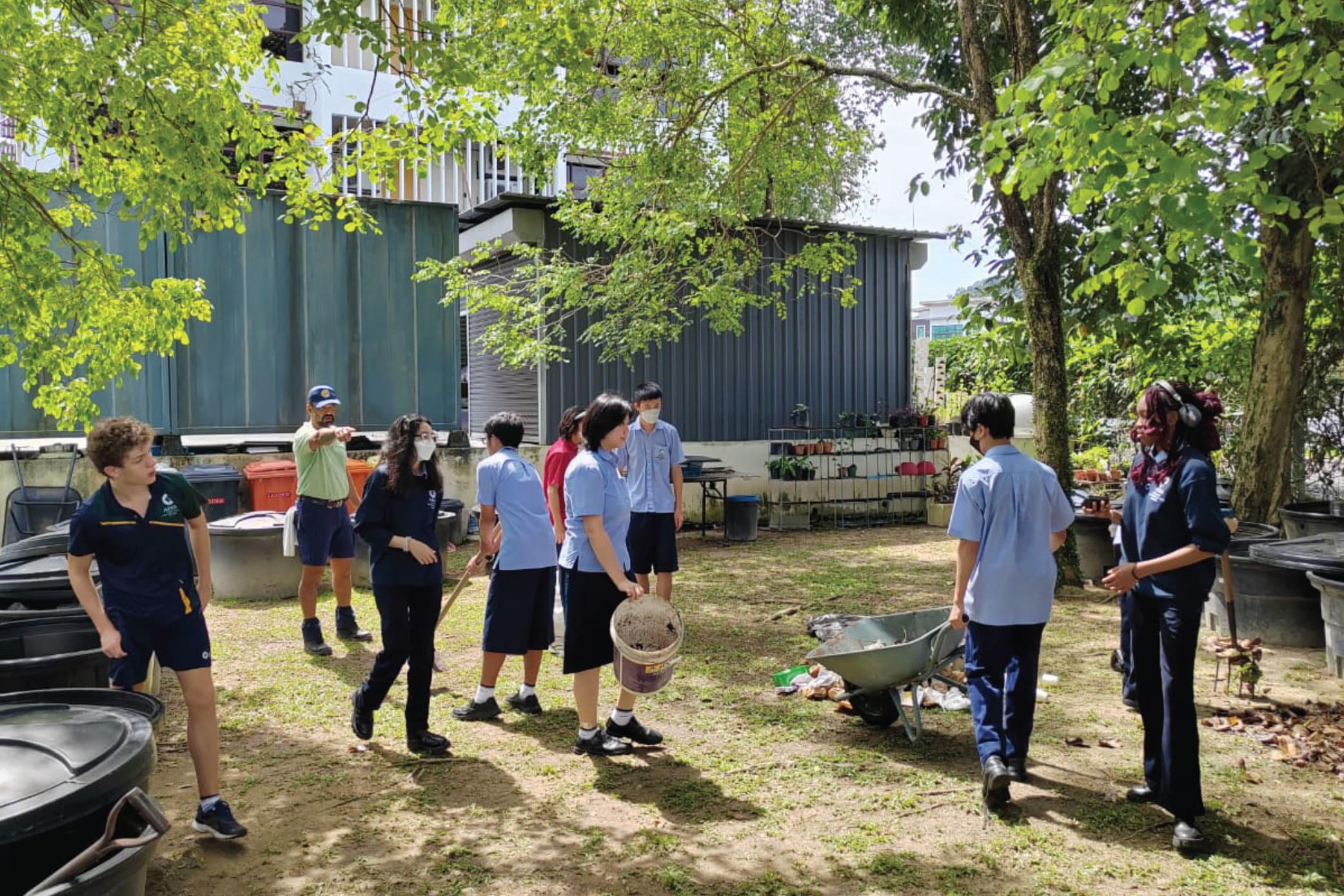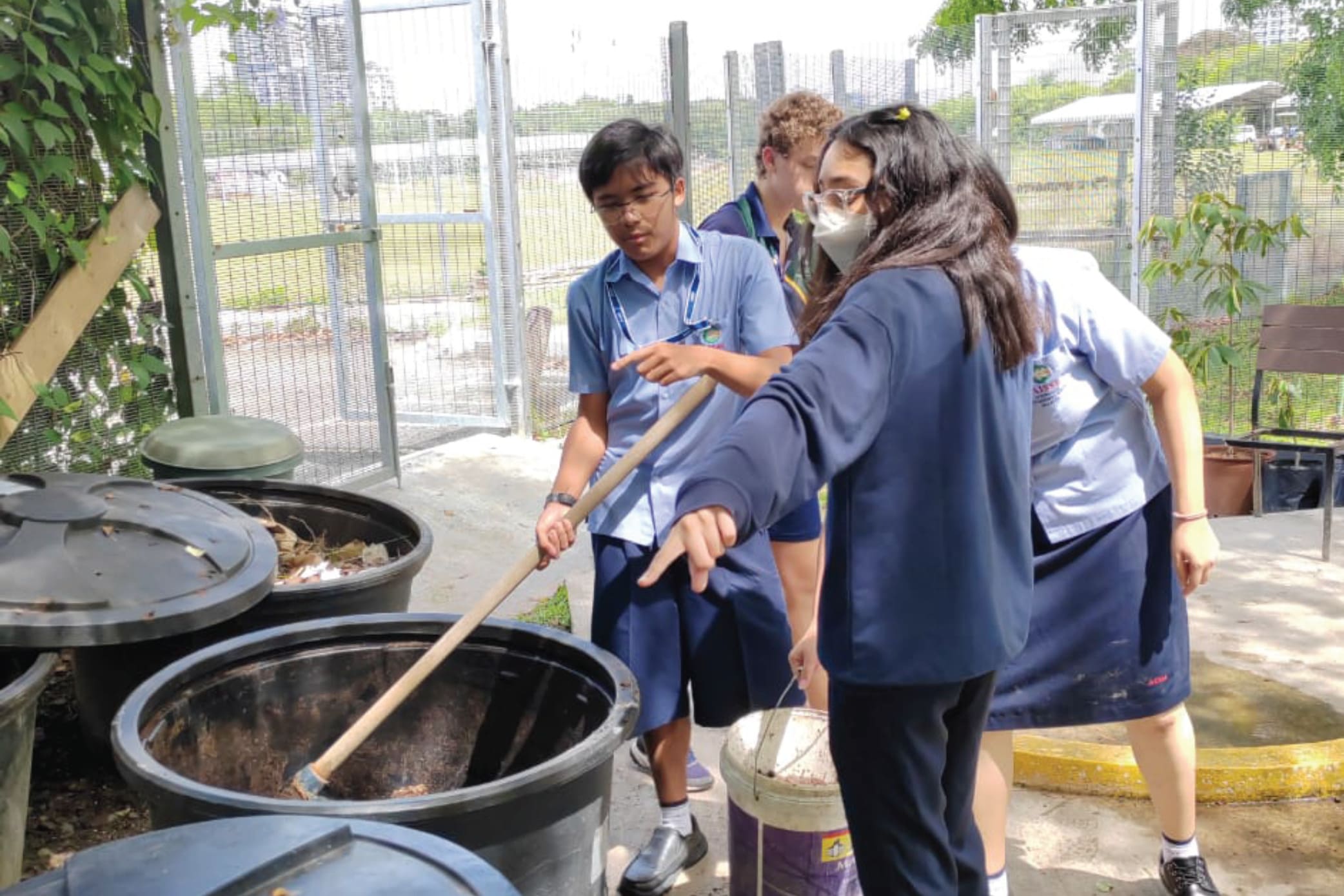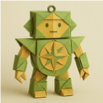PRINCIPALLY SPEAKING
Simon Brooks, Principal
One of our key goals at AISM is to support our learners in developing a strong sense of personal agency.
Personal agency refers to the ability of our students to take an active role in their lives and learning and make their own decisions which impact upon their own experience. It involves children and young people having a sense of ownership and control over their learning, being able to set goals, monitor their progress, and make choices about how they learn.
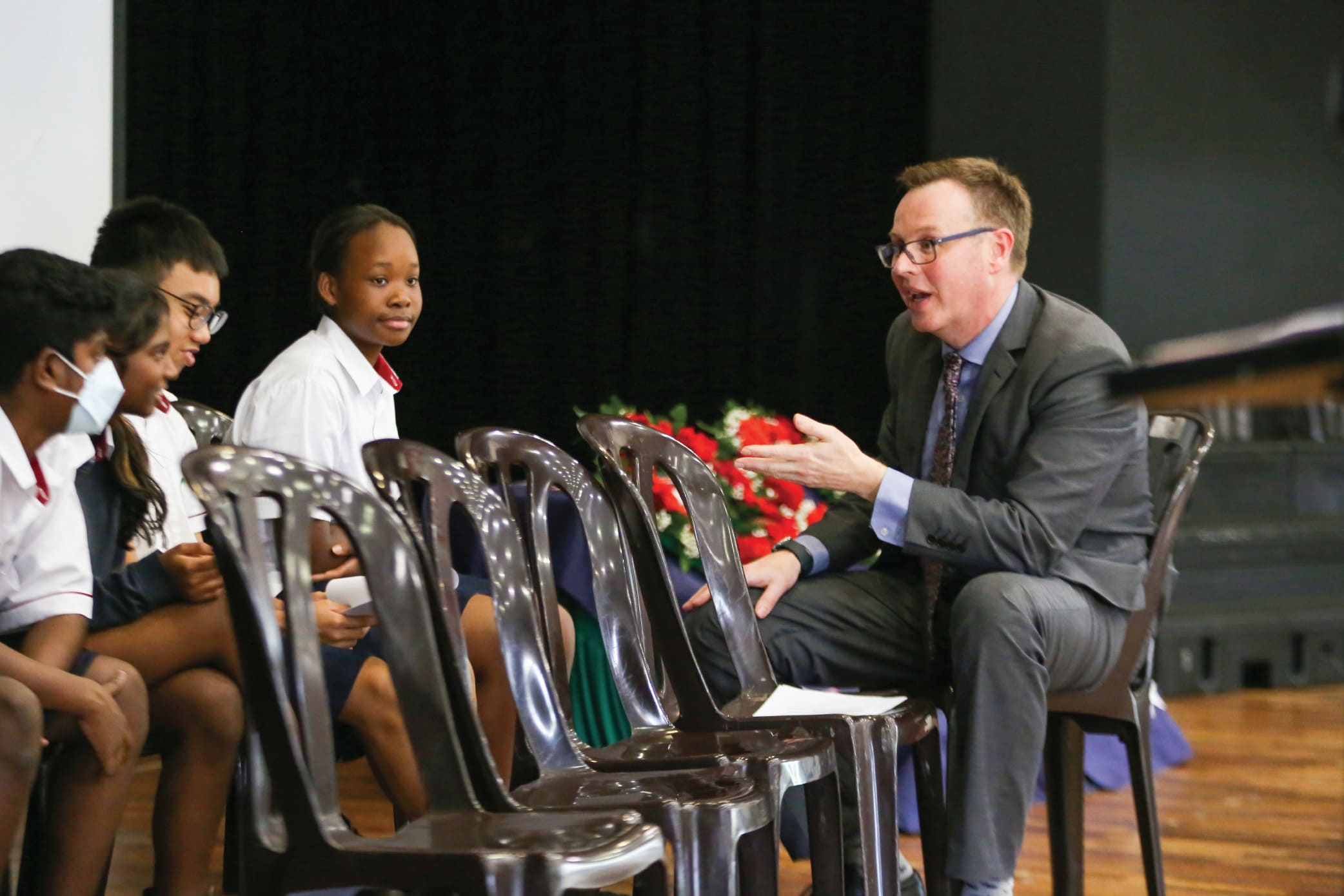
When students have agency, they are not simply passive recipients of knowledge, but active participants in the learning process. They are empowered to take responsibility for their own learning, to identify their strengths and weaknesses, and to make choices about how they can improve.
Personal agency supports students in developing the skills and habits of mind that are essential for success in both academic and non-academic contexts.
Drawing on work by Glen Gerryn, here are three ways children and young people can take agency over their life and move forward into a positive future.
1 - Be Courageous
“Nothing in the world is worth having or worth doing unless it means effort, pain, or difficulty.”- Theodore Roosevelt
At AISM we believe that learning occurs at the point of challenge. In the same way that our muscles grow when we push them to the limit, so too do we grow when we place ourselves in situations that are outside our comfort zone.
This takes courage - it often feels much easier to play it safe and step back from risk - there is much less to lose that way and life can feel much simpler and safer.
Courage is a choice. It needs to be practised. The more we choose the courageous pathway, the more we exercise this muscle and the more courageous we become. As human beings, we grow into the choices we make for ourselves on a daily basis.
So, next time you are faced with an opportunity that deep down inside you know could lead to something amazing for you (and similarly, could go wrong!), seize the day and have a go (so long as you are safe and what you are doing is appropriate for your age and within the boundaries of the law!)
The more courageous you are, the more opportunities will open up for you, and the more personal agency you develop.
2 - Stop Blaming Others
The thing about being courageous and taking risks is that sometimes things will go wrong. They wouldn’t be ‘risks’ if there wasn’t the possibility of this.
However, people with a strong sense of personal agency don’t point the finger at other people or the world around them when things don’t turn out as they wish.
They understand that being proactive means taking responsibility for their own behaviours and even their own emotions.
We all make mistakes. We all say things we don’t really mean and sometimes behave in a way that we later regret. When we have a developed a strong sense of agency, we own these mistakes. We apologise and say we are sorry when necessary. We understand that a true apology involves acknowledging that what we did was wrong and that we’ll strive to do better next time, rather than justifying our behaviour and excusing ourselves.
3 - Sit With Discomfort
Based on everything I have written above, it is clear that some discomfort is a necessary part of growth, but sitting with uncomfortable emotions can be challenging.
Many of us have been taught to swallow our feelings, leading to avoidance and suppression which hinders our emotional growth. But noticing and naming our emotions and sitting compassionately with ourselves through difficult times is a key aspect in developing wellbeing.
Emotions, both pleasant and unpleasant, are an essential part of being human. When we suppress or avoid our emotions, they get trapped inside, leading to psychological and physical ailments.
Naming our emotions has significant psychological benefits. According to a recent study, naming how we feel can reduce distress by 50%. Naming our emotions helps us gain a sense of control of them, developing our sense of personal agency. We become more aware of our emotional state and learn to manage it better.
These ideas also sit at the heart of our focus on Mindfulness at AISM. A central component of becoming more mindful is allowing ourselves to feel our emotions without fear or avoidance, and acknowledging that these emotions are paying us a visit. If we take this approach, like all visitors, eventually the emotions will leave us and we will be able to move on. In the process, we become more resilient and better equipped to handle tough emotions in the future.
What opportunities might you find in the next fortnight to develop your own disposition of personal agency?
2023 AISM First Term Experience Survey
Your comments as parents and guardians are important to us. Share with us your first term experience by clicking on the link below:
We highly encourage all parents and guardians to take this opportunity to provide the school with your valuable and CONFIDENTIAL feedback by Monday, 22 May 2023.
JUNIOR SCHOOL
Michelle Chaplin, Head of Junior School

As we head into next week the Junior School students are excited to be planning a few very special days… Mums - don't look too closely but let Dad know what he needs to do for next Thursday - send money!!
Sunday 14 May is Mother’s Day! This is a day we give thanks to our incredibly strong and loving mothers and all special women in our lives. To celebrate, our ELC and Junior School will hold a special assembly paying tribute to our mums!
Save the date and the time!!
- Thursday, 11 May
- 9.00 am in the Auditorium
- Hosted by Year 1
- Presentations from the Junior School Students
The assembly will be followed by an opportunity for parents to mingle and paint together. Junior school students will then have an opportunity to purchase a gift for their Mum at the PTC Mother’s Day stall - see details on Seesaw
Prices range from RM5 to RM20 - cash only
Green Week - Launches on Friday next week
Green Week is an annual event that empowers schools to engage in sustainability focused lessons, projects or activities.
Fundraiser Day - Friday, 12 May 2023
Green Theme Dress Up @ RM10 & Lunchtime Icy Poles @ RM3.
Year 2 - Year 4 Building A Bird Nest - Monday, 15 May 2023
Students are encouraged to bring their own recycled plastic bottles or milk containers.
Then… we will have the incredible Year 2/3 sleepover on Thursday, 18 May/Friday, 19 May.
These events create a wonderful joy in our students and our community and enhance our global learning and connections to the world around us. We know that a combination of academic rigour, experiential learning and diverse opportunities create the perfect environment for optimum learning - AISM has it all happening!
Year 4 Term 2
Mr Oliver, Year 4 Classroom Teacher
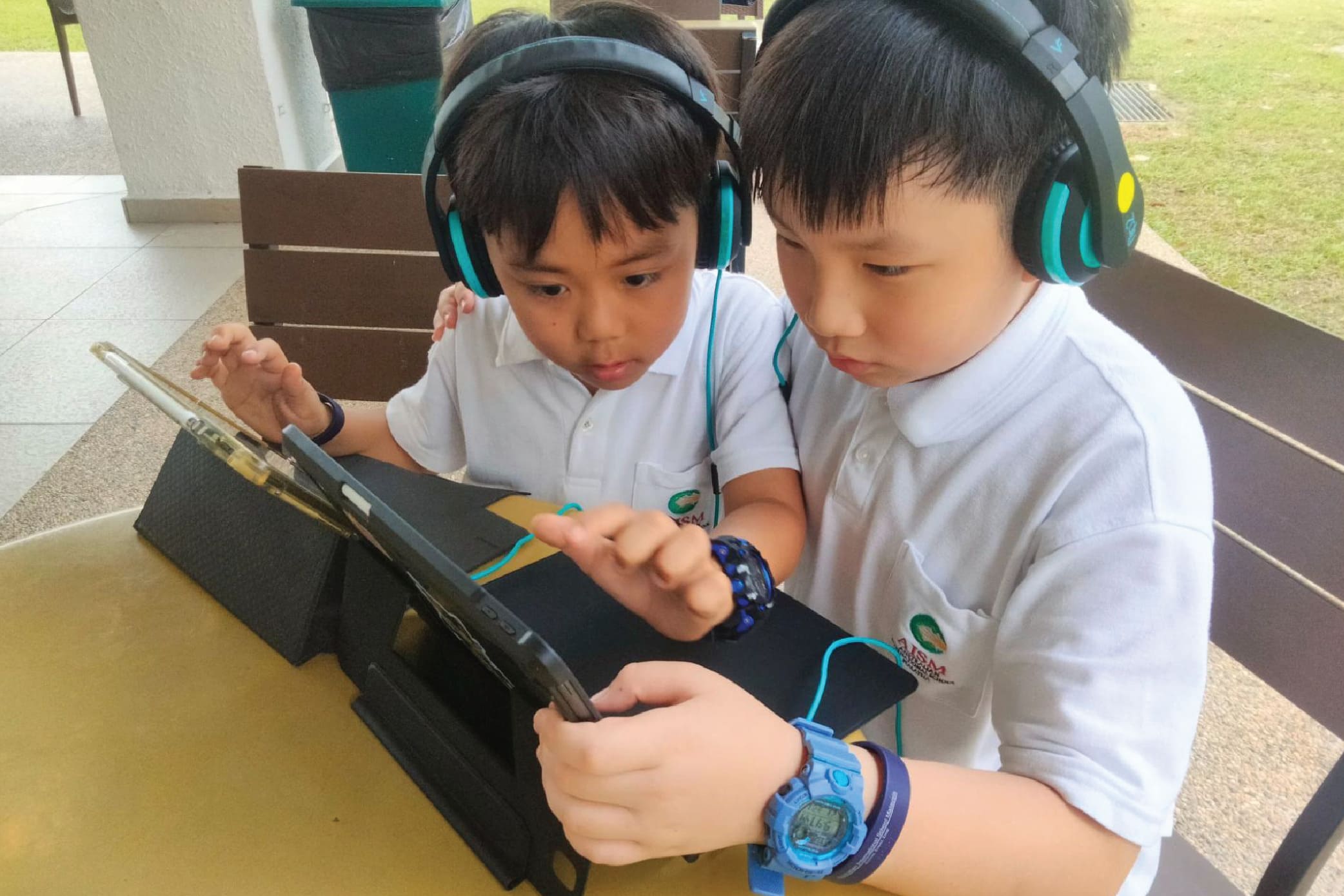
The Year 4 class has been full of excitement and creativity this term! We have been busy exploring various topics and honing our skills in different areas. One of our recent highlights was hosting an assembly where we showcased our talents in poetry, music, and singing. It was a wonderful experience to see our classmates perform a group poem, play the piano, and sing a song together while playing the ukulele. We are proud of our teamwork and the effort we put into making the assembly a success.
As part of our inquiry unit on colonisation, we created podcasts to share our learning with others. We researched the topic thoroughly and worked collaboratively to produce engaging and informative podcasts. It was exciting to hear our voices come to life and to share our knowledge. We are grateful for the opportunity to learn about such an important topic and to share our understanding with others.
Another exciting aspect of our learning journey has been exploring narrative writing. We have just begun our exploration of this genre and have been focusing on planning great stories using the 7 Steps to Writing Success. We are learning about characterisation, setting, conflict, and resolution, and have been working hard to develop our skills in these areas. It has been a fun and engaging experience to brainstorm ideas, create characters, and plan out our plots. We can't wait to see where our imaginations take us and to share our stories with each other.
Overall, the Year 4 class has had a busy and exciting term full of learning and creativity. We are proud of our achievements and grateful for the opportunities we have had to showcase our talents and share our learning with others. We are looking forward to continuing our journey of discovery and exploration in the coming weeks and months.
Malaysian Cultural Studies - Hari Raya Aidilfitri celebration
Adila Parman, JS LOTE Bahasa & MCS Teacher
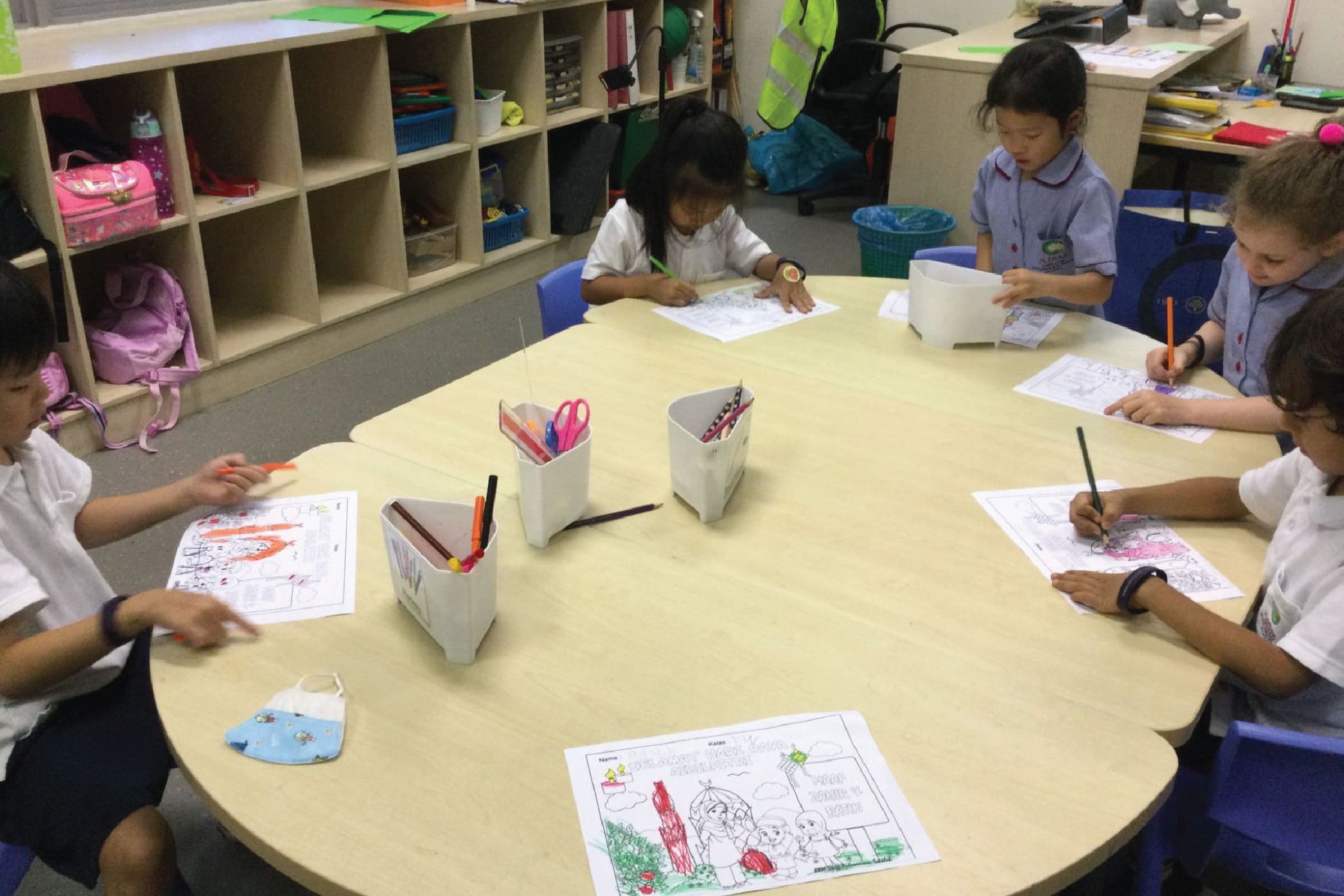
Year 1 students had an amazing time during MCS making their creative and beautiful ‘Duit Raya’ packet.
It's Eid here or more well known as Hari Raya Aidilfitri in Malaysia. It is a victory celebration for all Muslims who are able to complete 30 days fasting during Ramadhan. Like other festivals, this time around it has to be celebrated together with close-knit family members and friends. It is the wonderful Hari Raya this year and we wish for all Muslims to have a wonderful time and Selamat Hari Raya Aidilfitri!
In the Malaysian Cultural Studies lessons for Ramadhan and Eid theme, the learners experienced the joy and happiness of Hari Raya Aidilfitri by doing the activities which are related to Hari Raya Aidilfitri such as, making Hari Raya gift basket, the Hari Raya beautiful poster, the Hari Raya mindfulness colouring and the Hari Raya money packet or ‘duit raya’. There were lots of impressive artworks and positive reflections from the students. We would like to share with you these beautiful works from our students. Hope this year's Hari Raya may give a thousand meanings about love, kindness and happiness to all our AISM community.
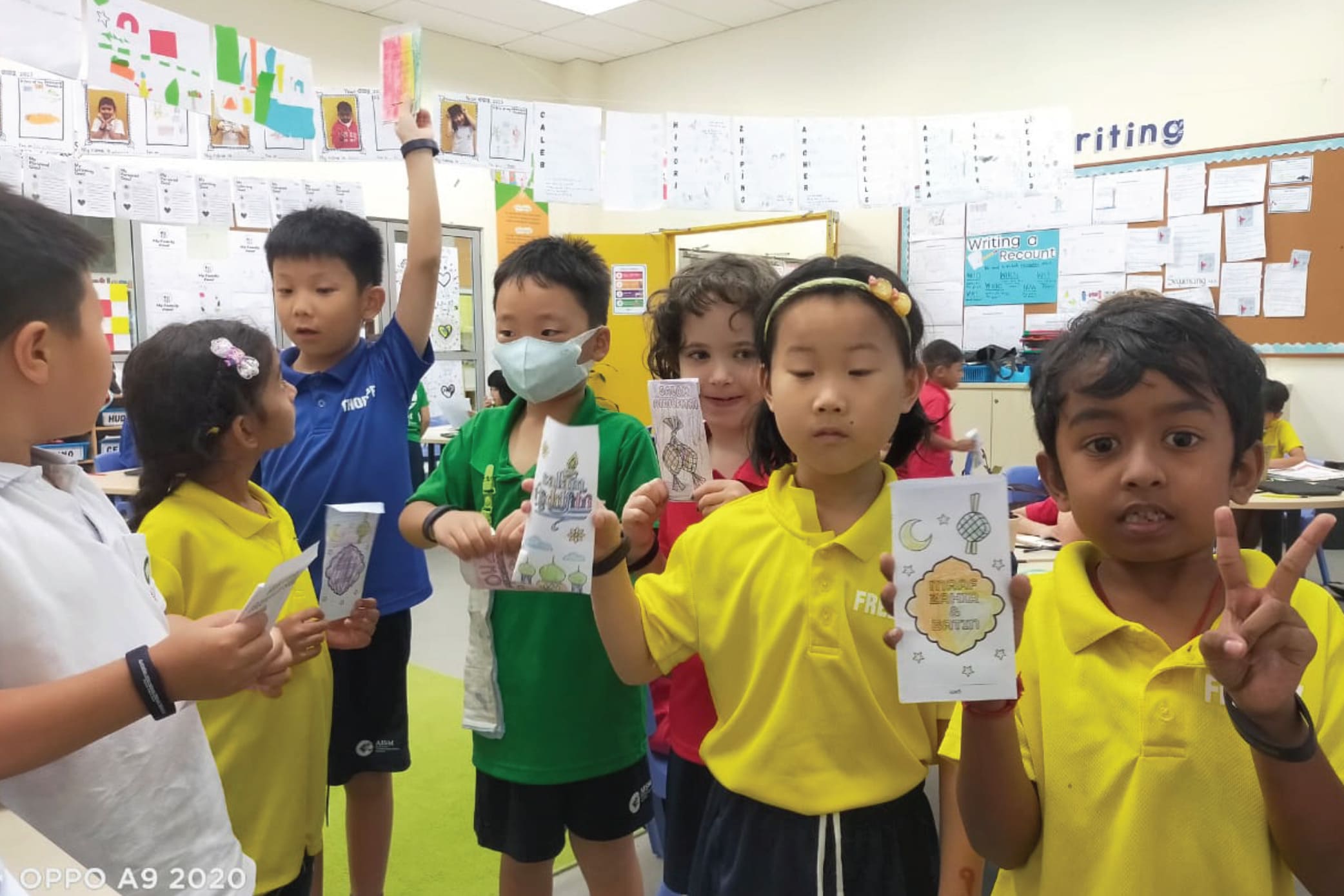
That was awesome, Foundation! They were doing the Hari Raya Aidilfitri poster colouring activity.
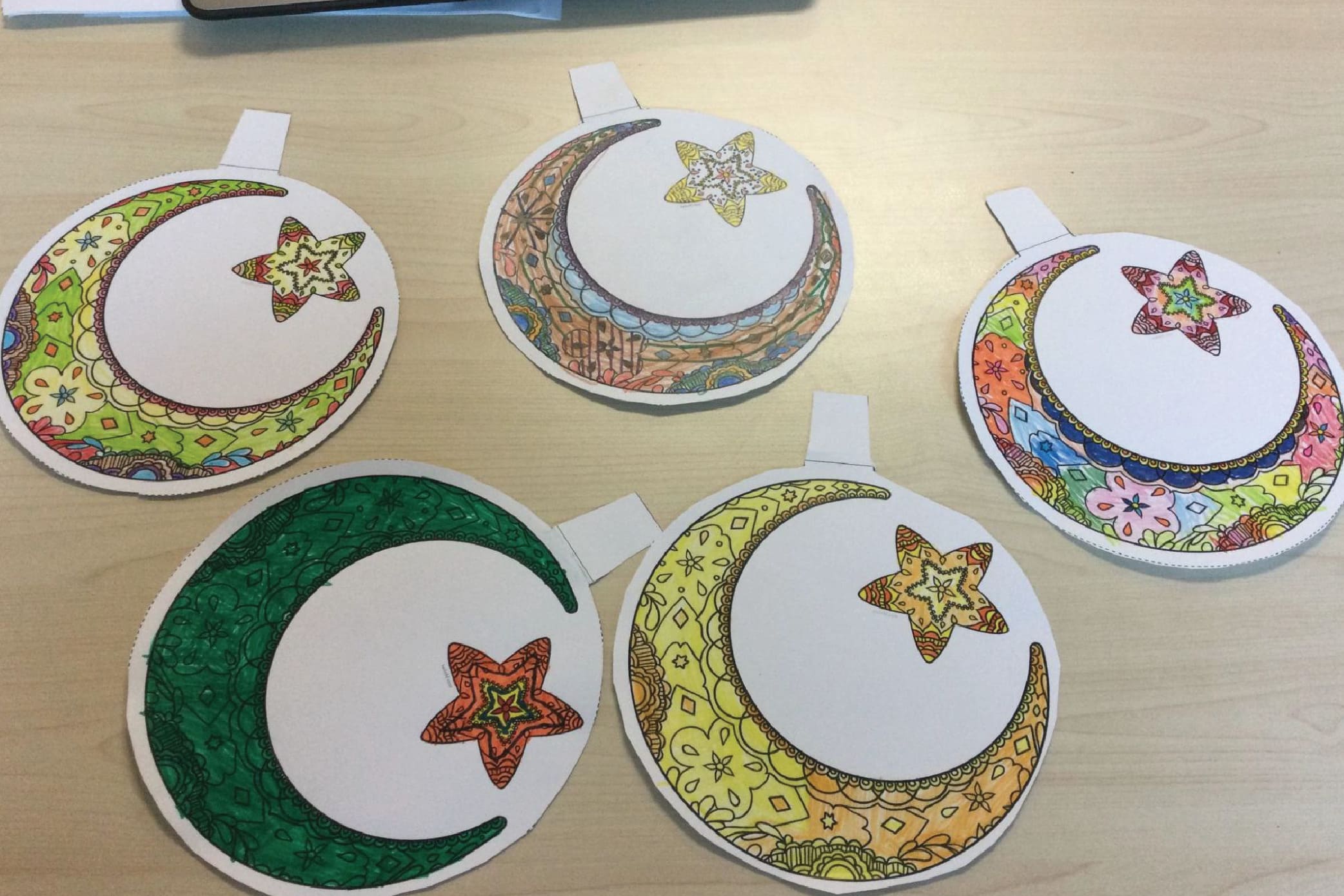
The Year 4 learners had a peaceful moment creating mindful Hari Raya decorations. It was beautiful and creative!
MIDDLE & SENIOR SCHOOL
Green Week is coming soon to AISM!
Day 1 is Friday, 12 May (Week 4) with a variety of competitions and activities taking place then and continuing through the whole of Week 5.
Friday, 12 May in a non-uniform day with a Green theme - RM10 donation for the privilege!
Cross Campus Learning
Mr Simon Matheson and Mr Jeremy Cox, Middle Senior School Head of Science and Technology & Junior School Year 3 CORE teacher
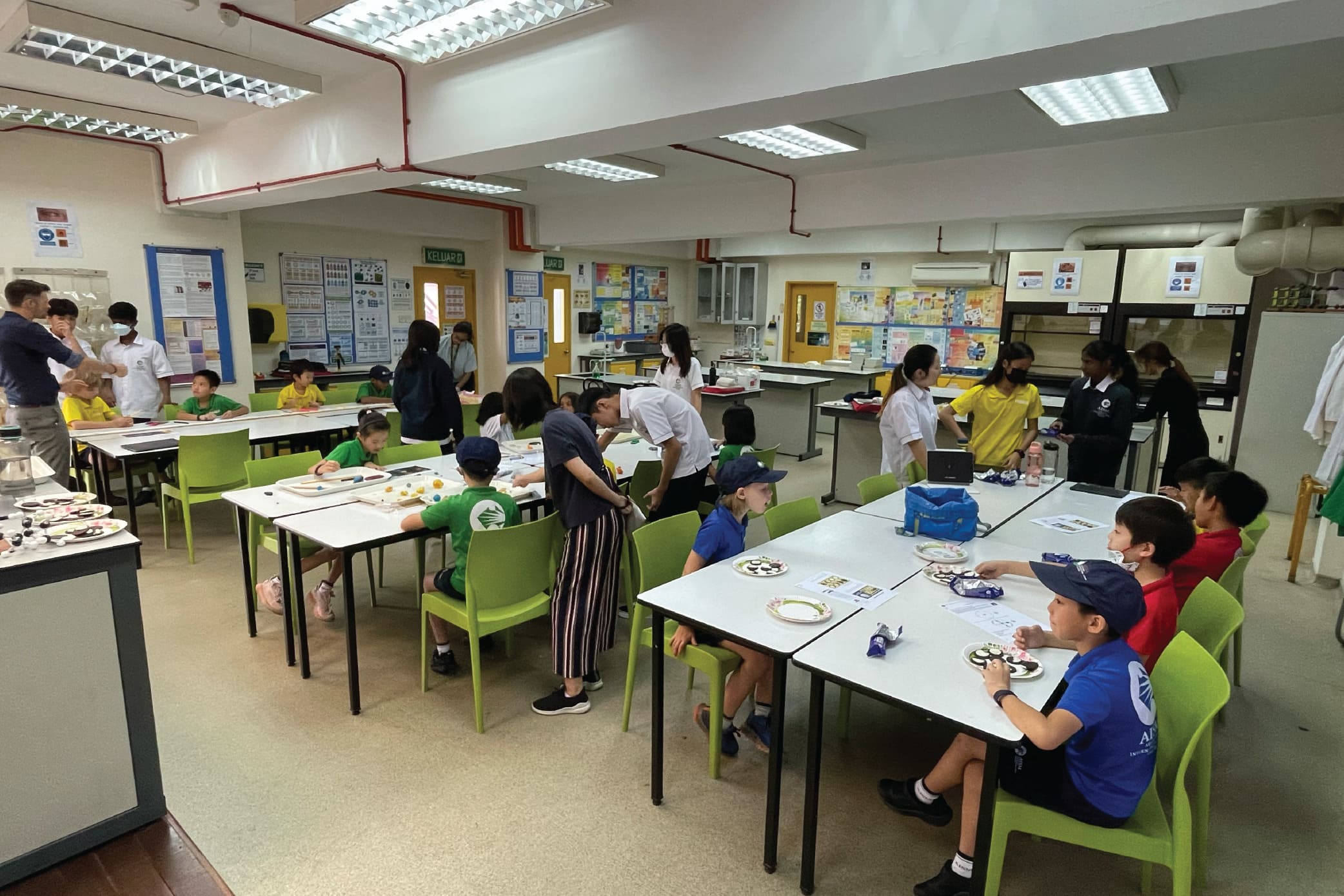
AS the term starts, many of our learning journeys towards a new path, excited to develop their knowledge and understanding. On Tuesday 25 April the keen Year 3 students ventured over to the Middle Senior School Science laboratories to learn all about the solar system from our Year 8 students. The excited little Scientists experimented with Oreo's to unlock how the moon phases develop through the month and why we only see one face of our closest natural satellite. We unpacked the details of the planets through our solar system, building scale models out of playdough to realise the relative size difference between the planets.
An Interesting fact students shared: "If you had an ocean large enough, Saturn would float in it."
The final investigation involved a mapping challenge, where the students used a scaled length to understand where our planets in the solar system orbit. Complementary to this, some of our Year 3 students were keen to draw in asteroids, moons, comets and the large starting point, the sun.
An Interesting fact students shared: "Since the discovery of Neptune, it has only orbited the sun once, taking 165 years to go round the sun."
Large thanks goes to our Year 8G Science students, who lead their younger investigators admirably, fostering inquisitive questions and creative ideas about our important place in our universe.
Organic Composting Course
Mr Simon Matheson and Mr Laurent Epetahui, Living Campus Sustainability coordinators
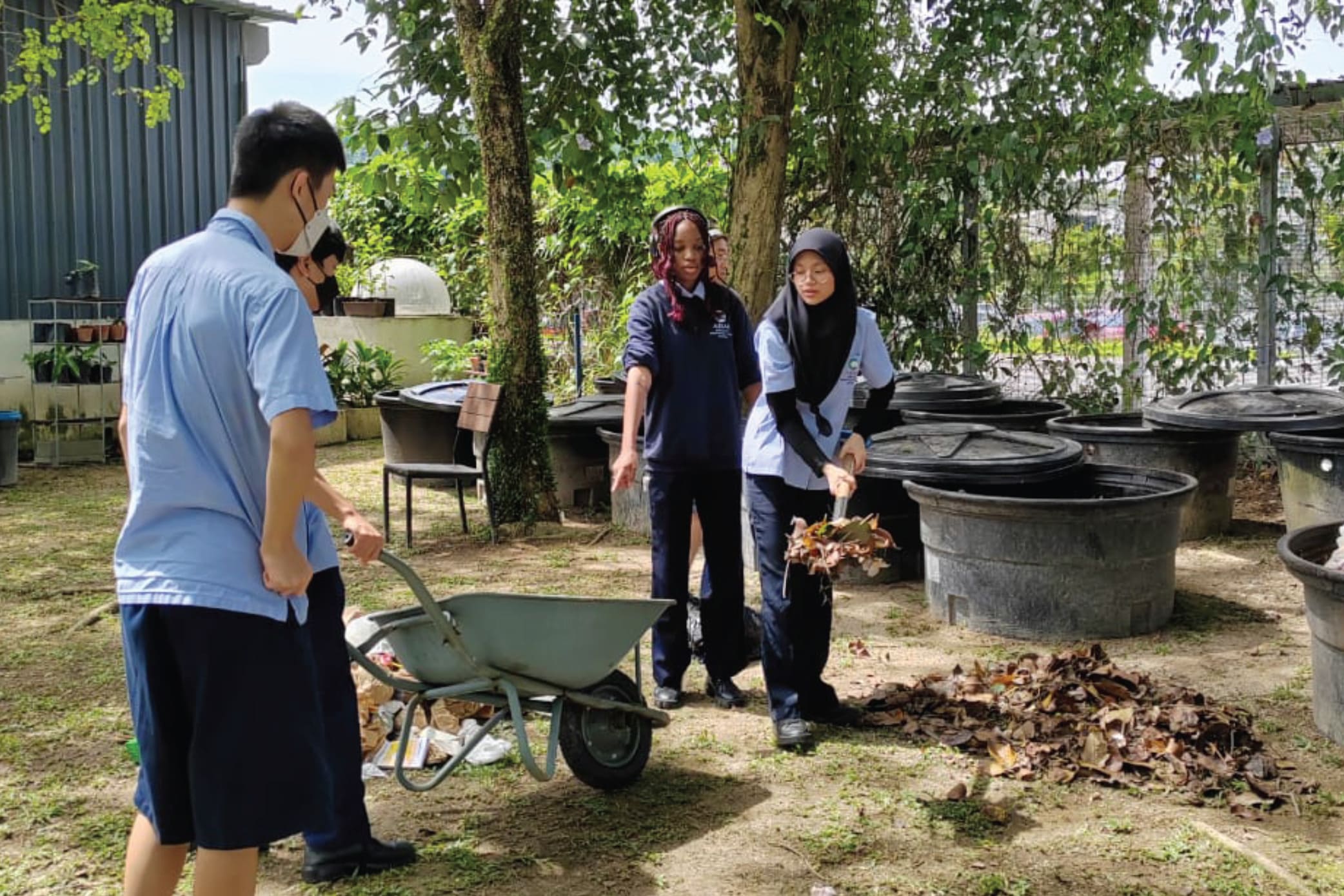
This week Mr Laurent Epetahui conducted the inaugural organic composting lesson with select Living Campus student representatives. This modular unit explores recycling, composting, production of organic soils, the planting, growing and harvesting of plants and the eventual marketing of plant products. Students use a variety of plants, materials and tools in the agricultural production process. Over the coming weeks, a variety of growing environments will be studied; such as pots, hydroponics and/or garden plots. Safe and responsible use of materials, tools and techniques by students is essential in the Agricultural Technology course. Perhaps even one day, students will set up a farmer’s market for the AISM community.
Year 11 Advanced English
Samuel Chong, Year 11 Advanced English Student

How to waste your life away - Zhi Hao Chin
Awake to the warm evening sunset. Like a beautiful, winged owl. Cocoon yourself in bed. A perfectly wrapped plastic trash bag. Notice ‘recyclable’ on the front, but the decomposing rotten food prevented any forms of reuse. A faint smell of body odour drifts through the air. It is thick and stale. Think: For how long have you not showered? Think: Perhaps I did not need one—perhaps—I just naturally smelled nice, after all—in the mediaeval times, men only bathed twice a year.
Enjoy a warm embrace from a sticky layer of grease, as if your shirt had glued itself to the skin. Glancing over, you notice old half-eaten food and stained clothes piled against the side of the room produces a vomit-inducing stench. Your very own ecosystem. How environmentally sustainable.
Buzz. Grasp for your phone, like a starving beggar, scrolling through the missed messages, eyes straining from the constant flashes of light.
Unread messages (8)
Mother: Why aren’t you responding to my calls?
Mother: Hello?
Mother: Answer now.
Friend A: Want to meet up next Thursday?
+60 13 593 5203: get rich quick through TikTok ($100000+ a day)!!
Mother: Call me.
Friend B: You good? Your mum is messaging me about you.
Mother: Please.
Lifelessly stare at the screen with a pleasurable guilt, fingers hovering over the reply button. Type: Hey, I’m fine, sorry for the late reply—I would like to move back in—I think I need to see a therapist—I think I need help. Stare at the screen a while before you press ignore. Your throat clicks in disgust, forcing your overnight noodles to spill into your mouth, cooking a delicious broth.
Tell yourself: Just five minutes, and then I will crawl out of my shell. A soft, reliable shell. You know you are lying to yourself, but lying to others would only disappoint them further. And you do not want to disappoint. Mindlessly scroll through Instagram. See people your age: entrepreneurs, models, and businessmen. One is taking a dip in the Bahamas. The other wore an expensive beige raincoat in Paris. The last was grinning, holding up a cheque for a million dollars. A perfect smile. Each tooth a block of brick coated in white paint. Think: I wish I were them—so perfect and successful. The caption reads, "Believe in yourself!" Gain a sense of fleeting motivation. Remind yourself to remember a time when you could derive excitement from life. Afraid of both success and failure. Think you are a failure.
The clock on the wall ticks slowly, but it is sure of what it wants. Five minutes quickly becomes five hours. You are now one with the bed, wrapped together in a plastic trash bag. Inseparable lovers. Again, another day passes.
* * *
Awake to the unnerving, spine-chilling darkness. Glimpses of moonlight illuminate parts of your room. A constant uneasiness ushers you to bury yourself in the bed. As if something were watching in the corners of your room. The cold air pricks your skin and parches your lips. You realise you have not swallowed in a while and quickly do so. Stare at the ceiling in a spiralling trance.
Think: I wonder if my life will get better—I am an anchor to those around me—and I wish I could be ten again—then my life would be better—then I wouldn’t sit here doing nothing—then I could change. You stare lifelessly into the corner of your room. Notice a perfectly wrapped plastic trash bag. The stench grows as it oozes out a murky juice. Your breathing becomes sporadic. What are you thinking about? I wish I could think. What do you think of your stories? Are they as pointless and meaningless as mine? Time passes by quickly when you are having fun. So yet again, another day passes.
* * *
Awake! Headache. Backache. Joint ache. Bugs crawling in my skin. Like an ageing ant nest. Scratch my scalp. Keep scratching until all that is left is a bloody corpse. Bang my head against the wall. The chimes of the midnight bells ring in my head. A perfectly wrapped plastic bag lives in the corner of the room. It angers me. Slam my foot against its sides. Spill its intestines. It lets out a painful squeal. I let out a painful squeal.
Was it worth it? Did you gain even an ounce of enjoyment from reading this? Was my story a good tool of escapism from your life? Do you feel better about yourself? "I just want to get this over with." Is that what you think? "What is even the point of this story?" There is no point, only a story that wastes paper and time. I hope you gain nothing from my writing. I hope you read this and feel a sense of despair and hit the lowest of lows in your life. Lay in your bed all day. Read stories that lead nowhere. Tie your shoes together so you have an easier time falling down the stairs. That way, I finally have someone that can empathise. That way, I can let another one of my days pass.
Reflection
Life story and How to be an other woman were the two main inspirations for my creative piece. Both narratives were metafictional and unique in their own rights. How to be an other woman inspired me through the use of the ‘expensive beige coat motif’, punctuation (colons, dinkus, em dash), vivid imagery, and the second-person perspective to tell the narrative of a contemporary issue. This inspired me to write my own contemporary story that contains relatability with the real world and a narrative using "a perfectly wrapped plastic trash bag" as a motif for the author’s mentality and slow destruction. Switching from second to first person showed the process of the author trying to distance himself from his issues until he finally could not, which was emphasised by the motif. Substituting “Think:'' instead of “Say:”, emphasises the inter turmoil between the author and his issues. Dinkus is used to separate the narrative into three parts and create a transition from sane to insane.
Stream of consciousness and the fourth wall break in Life Story left a large impression on me due to the sudden shift in tone. This inspired me to implement a shift from the second (your) perspective to the first (my) perspective in the last two paragraphs. My theme of anxiety, self-esteem, and self-reflection was inspired by Life Story’s theme of reflection, as it was relatable and forced readers to rethink the purpose of the story. The fourth wall break in my writing depicts the breakdown of the author, paired with an acceptance of their issues. Stream of consciousness is used to show the symptoms of anxiety and the author's constant attempts to project their issues onto the reader. Life Story’s “The reader!” also inspired my narrative to contain the line “Awake!” to illustrate a sudden shift in tone.
To describe the theme of anxiety, I used my fear of the bigger picture, whether I would live a successful life or fail, as well as more micro incidents that impact socialisation through lines like "Stare at the screen a while before you press ignore". Using my laziness throughout life, I constructed a narrative with no resolution to depict how difficult it is to become productive. "The clock on the wall ticks slowly, but it is sure of what it wants," describes the panic of time passing yet the unwillingness to do anything. This feeling was directly related to my procrastinative nature.
I adhered to my writing tips of using my own experiences and voice and getting feedback. I effectively utilised my personal voice through a depiction of a heavily exaggerated version of me. Through my experiences, I conveyed a sense of low self-esteem and anxiety and was able to produce vivid imagery like "enjoy a warm embrace from a sticky layer of grease..." to illustrate the author’s self-hatred and disgust. I effectively utilised peer feedback in order to amend sentences, punctuation, and narrative structure.
There were many other ideas I could have implemented and drawn from other texts. A continuation of The Yellow Wallpaper would have been my secondary idea. During the planning phase of the task, I was also conflicted about writing in the first and second person, as my ending fit the first person more.
During my writing process, I could have created a more detailed plan. My narrative structure and plot were experimental and unconventional; thus, a structured plan would have made the writing process more efficient. Without a concrete plan, I found it difficult to transition from the beginning of the narrative to the middle. The pacing and transitions between paragraphs could have been more fluid. Transitioning from paragraph to paragraph was especially difficult as the overarching idea of the narrative is a lack of progression; thus, continuing the narrative at a good pace without continuing the development of events was challenging.
I will utilise my experiences and skills learned from this task in future imaginative pieces by creating detailed, structured plans. In order to improve my skills, I will utilise the techniques of other authors as well as continue to practise creative writing.
